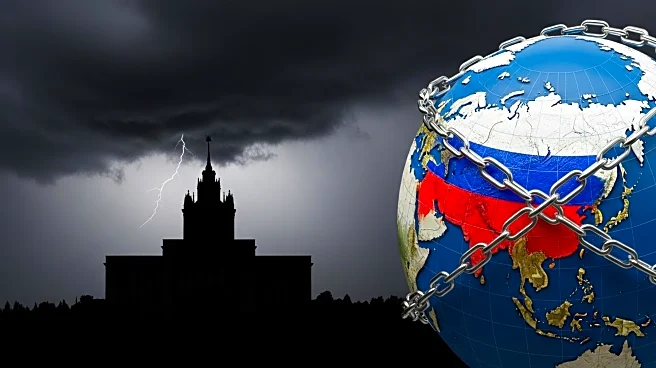What's Happening?
U.S. lawmakers, led by Senator Lindsey Graham and Congressman Brian Fitzpatrick, are attempting to pass a sanctions bill against Russia by attaching it to a government funding measure. This legislative strategy aims to force a vote on the 'Sanctioning Russia Act of 2025,' which has been stalled due to perceived reluctance from President Trump to impose broad sanctions on Moscow. The bill seeks to cut off Russia's financial resources by imposing secondary sanctions on countries purchasing Russian oil, targeting major buyers like India and China.
Why It's Important?
The proposed sanctions represent a significant escalation in U.S. efforts to pressure Russia economically, particularly in the context of the ongoing conflict in Ukraine. By leveraging the threat of a government shutdown, Congress is attempting to bypass the executive branch's hesitations and assert a more aggressive stance against Russia. This move could have substantial implications for U.S. foreign policy, potentially straining diplomatic relations with countries affected by the secondary sanctions and impacting global energy markets.
What's Next?
The inclusion of the sanctions bill in a must-pass funding measure could lead to a political showdown, increasing the risk of a government shutdown. The bill's passage would compel President Trump to either accept the comprehensive sanctions or veto the funding measure, which could have broader political and economic consequences. The international community, particularly countries targeted by the secondary sanctions, may respond with diplomatic or economic countermeasures.










